One of the main hallmarks of a truly great workplace leader is that they’re open to listening to their employees. Bad managers, on the flip side, think that their opinions are all that matter. For them, anyone who disagrees with them is the ‘enemy.’ That sort of approach is awful for company morale, and it’s bound to affect the bottom line, too.
Redditor u/IllustriousReport482 regaled the Malicious Compliance online community with a story about what happens to leaders who never learn to listen. According to the IT pro, one manager forced them to take the company server down during office hours, despite all of the warnings. The chaos was immediate and immense. Scroll down to learn more details about the fallout.
One of the smartest things you can do as a boss is to actively listen to your employees. Often, they have some spot-on ideas and warnings

Image credits: Flipsnack / unsplash (not the actual photo)
An IT professional shared how an entitled and toxic boss forced them to shut down the company servers during work hours. The fallout was intense

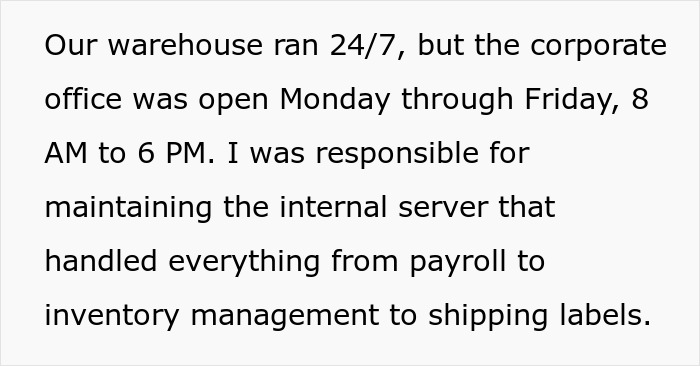
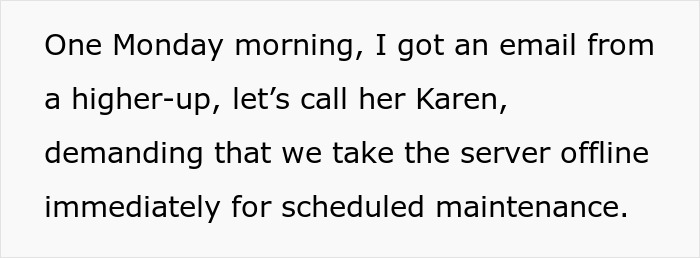
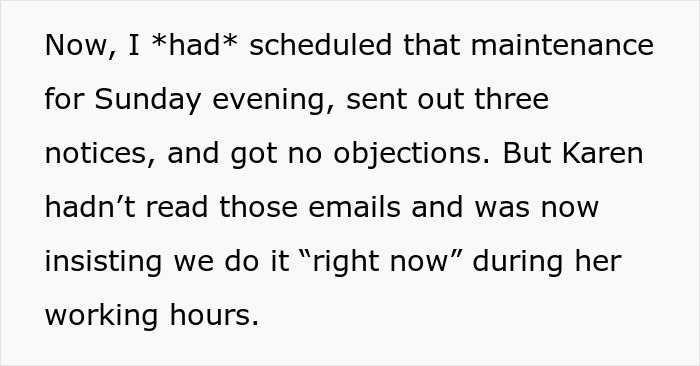

Image credits: Getty Images / unsplash (not the actual photo)
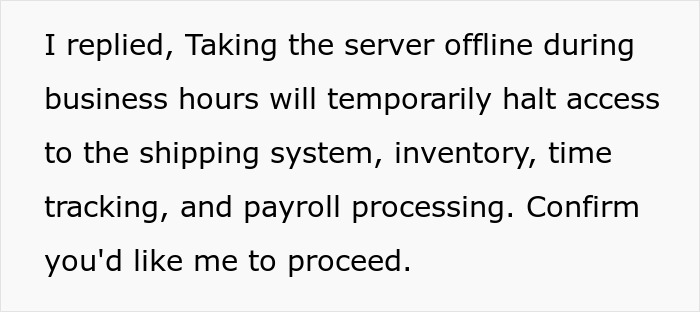

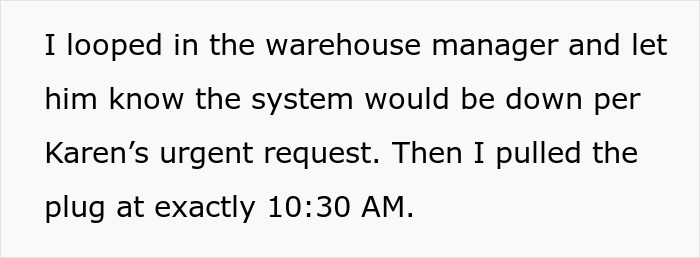
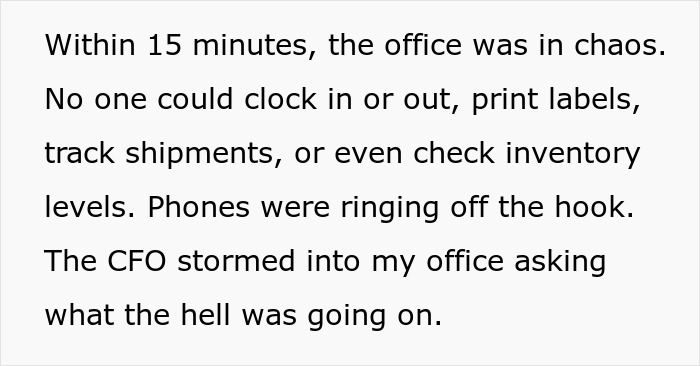


Image credits: Getty Images / unsplash (not the actual photo)
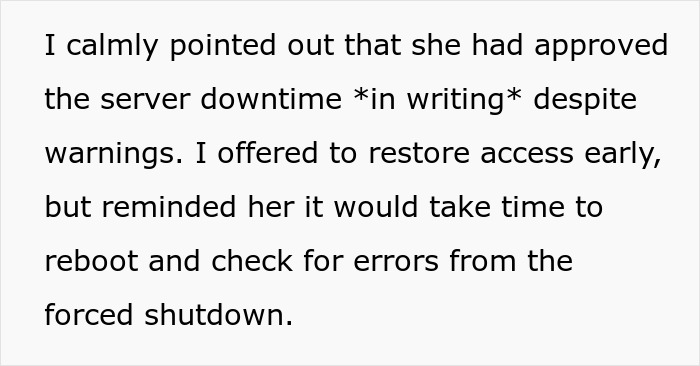



Image credits: IllustriousReport482
Toxic workplace leaders lack empathy and self-awareness, avoid taking responsibility, and make your life hell in many other ways

Image credits: Vitaly Gariev / unsplash (not the actual photo)
Working under a bad workplace leader is awful for morale and motivation. According to the Harvard Business Review, just because your boss is annoying, dismissive, or frustrating at times doesn’t necessarily mean that they’re toxic.
Truly toxic managers lack self-awareness and have low emotional intelligence. They’re often unable to recognize and control their emotions.
“They tend to think that they are right about everything. This inhibits their ability to create resonance with teams and generates resistance to feedback,” HBR explains.
Usually, these poisonous workplace leaders don’t take the time and energy to invest in relationships. They don’t prioritize empathy, nor do they understand how the way in which they communicate affects the rest of the company.
They can’t relate to their employees’ emotions, perspectives, or challenges. The end result is very simple: low trust.
Other red flags that you probably work with a toxic boss include the following:
These bosses don’t care about the ideas and input of their subordinates. For them, the only opinion that matters is theirs

Image credits: Vitaly Gariev / unsplash (not the actual photo)
Meanwhile, Verywell Mind stresses that toxic bosses don’t listen to other people and refuse to accept feedback.
“Another red flag of a toxic boss is the inability (or outright refusal) to listen and accept input. When leaders ignore feedback, shut down ideas, or make decisions without accepting other ideas, it’s often a sign of authoritarian leadership. Such leaders have a ‘my way or the highway’ approach to management. They tend to rule teams using fear and intimidation and aren’t willing to listen to team members’ ideas.”
These managers also don’t respect you as a team member, dismissing your ideas, interrupting you, and disregarding your input.
Aside from trust within the organization taking a strong hit, working alongside a toxic workplace leader also leads to greater fear and anxiety, low morale, and burnout.
That’s on top of an increased risk of developing serious health issues (depression, PTSD, anxiety, premature aging, high blood pressure) and an increased employee turnover.
To put it bluntly, people don’t want to work with colleagues who decrease their job satisfaction and undermine their self-worth. So, they start looking for jobs elsewhere.
The consequences of this type of mismanagement are immense. You end up directly harming workers’ health, motivation, and well-being, forcing many talented employees out

Image credits: Getty Images / unsplash (not the actual photo)
This leads to brain drain and a loss of talented employees, eventually affecting the company’s efficiency and quality of work, leading to a worse reputation and lower profits. Not to mention the added costs of hiring and training replacements for those workers who left.
“No one should be working for someone who doesn’t respect them, makes them feel undermined, or makes their work life hell. While you can do all that you can to maintain high work standards to protect yourself from unwarranted criticism, a toxic boss may still find ways to belittle you. If a boss’s toxic behavior has become intolerable and all else fails, actively seek out other opportunities,” HBR suggests.
“If the company you’re working for is a place you like, you could reach out to HR and talk about other roles within the company. If you feel the toxicity is a widespread issue within the organization, look for opportunities outside. Working for a toxic boss can be devastating and can have a lasting impact on your mental and physical health. No one should suffer at the hands of a toxic boss.”
What do you think of the way the IT professional handled their toxic manager? Who is the very worst workplace leader that you’ve ever had to work with? Did you ever maliciously comply with their (awful) demands to make them have a taste of the consequences of their actions? How do you deal with toxic coworkers in your company? Let us know what you think in the comments.
As the IT pro’s post started going viral, they interacted with some of their readers and shared additional context

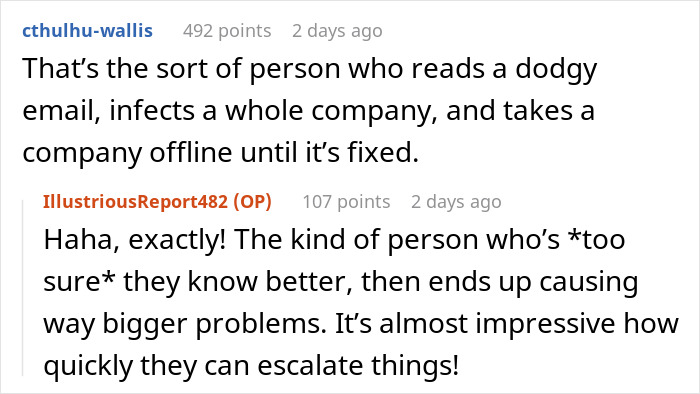

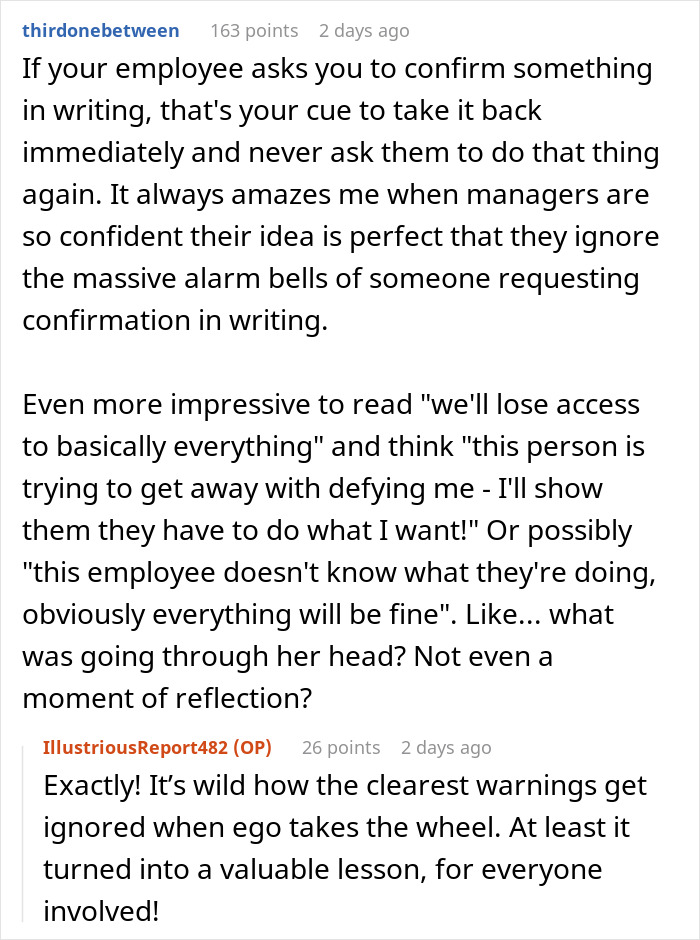



The internet loved the online story. Here’s how some readers reacted to the phenomenal tale



Unfortunately, bad bosses are far too common. Some workers had similar stories that they wanted to share


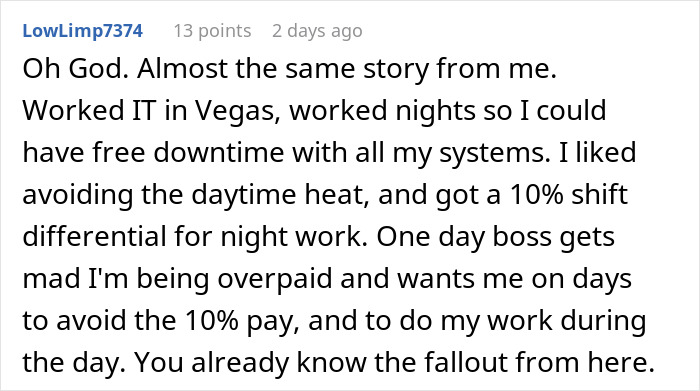

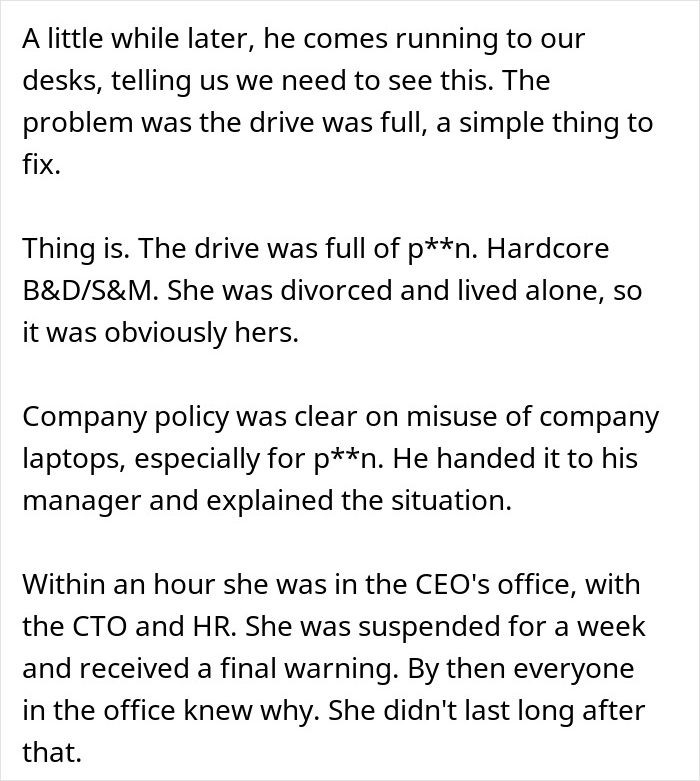
 Follow Us
Follow Us





